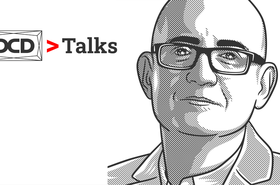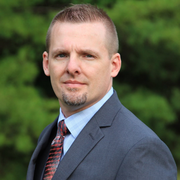In the fast-paced and ever-changing data center industry, a breadth of learning opportunities at key industry events helps us keep up with the latest trends. While there is much to learn at events that bring together hundreds, if not thousands of colleagues, one of my favorite learning and networking opportunities came in September at the ‘Power down: Getting green data center retreat’, co-hosted by Kohler and Schneider Electric.
For the second time, the small, private event brought together a group of global data center leaders paving the way toward making our industry more sustainable. For 72 hours, attendees engaged in several networking opportunities to help us learn more about each other’s challenges and successes, not to mention meaningful discussions about advancing sustainability. It was truly an optimal environment to share impactful ideas.
We heard from some of the industry’s leading experts in sustainability on topics like Scope 3 emissions, on-site and off-site energy solutions, more meaningful reporting tactics and more. It was the ideal setting to delve deeper into discussions that will result in actionable steps we can all take to advance sustainability.
However, one of the most motivating sessions came from our keynote speaker, Robert Swan, a polar explorer and environmental leader. I was curious to see what a person who has probably spent more time in Antarctica than in data centers was going to say about improving sustainability in our industry, but his unique perspective makes it clear why we all need to do better, and quickly.
Leveraging leadership
Swan is the first person to have walked both poles of the world. As he regaled Getting Green attendees with tales of his travels across the North and South Poles, he emphasized that amazing feats like that can’t be done without exceptional leadership and trust, which illustrated the role that we as leaders in our industry play in advancing sustainability.
If Swan lacked strong leadership skills, his team wouldn’t feel confident following him through some of the world’s toughest terrain. And if Swan and his team didn’t have a relationship based on trust, it quite literally could’ve meant life or death.
As leaders, we have an important role to play and an expectation to set. Without our vision and encouragement, the teams we lead won’t innovate and move us toward a more sustainable future.
Like Swan’s expedition crew, it takes a group effort to advance a mission, with each team member playing an important role. Establishing trust between leaders and our teams is just as important. Without it, there can be no breakthrough technologies that will reduce carbon emissions. Distrust leads to complacency, which is a dangerous place to live.
Protecting uncharted territory
Beyond our roles at our various companies, Swan explained why we, as data center industry leaders, are among an important group of people who can help protect Antarctica. With no permanent residents and a maximum of approximately 5,000 visiting scientists at once, Antarctica is one of the world’s last great undisturbed territories. He discussed two big factors threatening its natural landscape.
- First: Climate change. As Swan shared a breathtaking photo of his team standing on a sheet of ice that is miles deep, he said, “We were standing on the majority of the world's ice and fresh water supply. If we continue on this path, we will melt this, and we will be swimming.”
- Second: The growing demand for energy. Swan said people go to Antarctica now to explore energy resources. If we use more clean and renewable energy, there won’t be a need to explore Antarctica and interrupt its natural environment.
To prove you can survive in the harshest conditions utilizing only renewable energy resources, Swan's team completed the 2023 Undaunted Expedition across the Antarctic landmass to the Geographic South Pole.
Kohler equipped the journey with a customized Kohler generator that utilizes a Kohler diesel engine fueled by hydrotreated vegetable oil (HVO), a 90 percent carbon-neutral fuel that’s sourced entirely from waste products.
Swan believes that if he and his team can successfully complete a mission like that with renewable energy, we can use it for anything, anywhere – including in data centers.
A strong advocate for the continued preservation of Antarctica, Swan founded the 2041 Foundation, whose mission is to engage businesses and communities on climate science, personal leadership, and the promotion of sustainable practices. It also aims to keep the Antarctic Treaty, which ensures that the area is used for peaceful purposes only, intact.
Let’s do better together, starting now
Swan set the stage by explaining the role data center leaders play in protecting not only Antarctica, but the world we live in. Now it’s our job to maintain momentum. This brings me back to why the ‘Power down: Getting green data center retreat’ is one of my favorite events.
While the event is over, our work is not. At the event, several leaders responded to Swan’s challenge to do better, and we have action plans in place to continue advancing sustainability. Attendees will conduct regular virtual meetings to keep studying the topics discussed and create actionable steps to move the industry forward.
The Getting Green event is growing into a movement that will keep us engaged and propel us toward a more sustainable future. As an industry, we’ve come a long way, but we still have much to accomplish. The more leaders we have working together to establish trust and set expectations, the more we can do more together.
If you would like to get involved in the Getting Green movement, I encourage you to reach out to me at [email protected].
More from Kohler
-

DCD>Talks Ensuring Energy Resilience with Ian Wilcoxson, Kohler
This DCD>Talk from our London event dives into ensuring energy resilience with Ian Wilcoxson, Kohler
-

Sponsored Backup power and its purpose in data center disaster recovery planning
You can’t control disaster, but you can control your recovery. The importance of data center backup power when planning for the worst
-

Delivering more sustainable mission-critical generators - now and in the future
Explore more sustainable mission-critical power technologies


